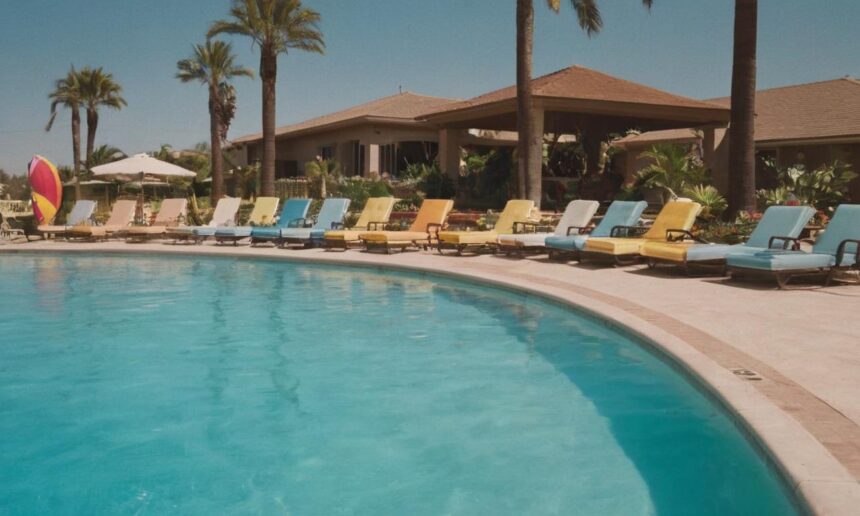Welcome to the world of pool mastery, where the delicate balance between art and science converges to create the perfect aquatic oasis. Becoming a pool master requires a profound understanding of water chemistry, equipment maintenance, and the finesse of turning a simple pool into a luxurious retreat. In this comprehensive guide, we delve into the intricacies of pool management, offering insights and tips to elevate your expertise in the realm of aquatics.
The Essence of Pool Mastery
At the heart of being a pool master is the ability to maintain water quality at optimal levels. This involves a deep understanding of the chemical composition of pool water, including pH levels, chlorine balance, and alkalinity. Regular testing and adjustments are crucial to prevent issues such as algae growth, cloudy water, or skin irritation.
Equipment and Maintenance
Efficient pool management extends beyond water chemistry to encompass the proper care of equipment. Regular inspection and maintenance of filters, pumps, and heaters are essential for ensuring a smoothly running pool system. A pool master recognizes the significance of preventive measures to avoid costly repairs and downtime.
Design and Aesthetics
Transforming a pool into a masterpiece involves a keen eye for design and aesthetics. From the selection of tiles and pool finishes to the arrangement of landscaping elements, a pool master creates an inviting and visually appealing environment. The interplay of colors, shapes, and textures contributes to the overall ambiance of the pool area.
Efficient Energy Use
In the era of sustainability, a pool master is attuned to the importance of energy efficiency. Implementing energy-saving technologies such as variable-speed pumps, LED lighting, and solar heating not only reduces environmental impact but also lowers operational costs. Striking a balance between luxury and eco-friendliness is a hallmark of a true pool master.
Customer Satisfaction and Communication
For those managing pools in commercial or community settings, effective communication with clients or residents is paramount. A pool master understands the importance of addressing concerns promptly, providing clear guidelines for pool usage, and ensuring a positive experience for all stakeholders. Customer satisfaction is the ultimate measure of success in pool management.
Continuous Learning and Adaptation
The world of pool management is dynamic, with new technologies and techniques constantly emerging. A pool master embraces a mindset of continuous learning, staying updated on industry trends, and adapting to evolving best practices. This commitment to improvement ensures that their pool management skills remain cutting-edge.
In Conclusion
Embark on the journey of becoming a pool master, where expertise meets passion, and science merges with art. By mastering water chemistry, maintaining equipment diligently, prioritizing design aesthetics, promoting energy efficiency, ensuring customer satisfaction, and committing to continuous learning, you can elevate your pool management skills to new heights. Unleash the full potential of your aquatic haven and leave a lasting impression on those who take the plunge into your meticulously crafted oasis.
Delving into the intricacies of water chemistry, a pool master must grasp the nuances of various chemical components. Beyond pH levels, chlorine balance, and alkalinity, considerations like calcium hardness and cyanuric acid play pivotal roles. Achieving the perfect chemical equilibrium safeguards against issues like corrosion, scaling, and bacterial contamination.
Water Chemistry Checklist
| Parameter | Ideal Range | Monitoring Frequency |
|---|---|---|
| pH Levels | 7.2-7.8 | Twice Weekly |
| Chlorine Balance | 2.0-4.0 ppm | Daily |
| Alkalinity | 80-120 ppm | Weekly |
| Calcium Hardness | 200-400 ppm | Monthly |
The Green Initiative: Sustainable Pool Practices
Embracing environmental consciousness, a modern pool master integrates sustainable practices into pool management. Beyond energy-efficient equipment, considerations like rainwater harvesting, eco-friendly chemicals, and green landscaping contribute to a pool’s eco-friendly footprint. Sustainability isn’t just a choice; it’s a responsibility for the conscientious pool master.
Sustainable Pool Management Tips
- Install solar-powered pool covers for heating.
- Use recycled and biodegradable pool cleaning products.
- Implement a rainwater collection system for pool top-ups.
- Opt for native plants in landscaping for water conservation.
Najczęściej Zadawane Pytania (FAQ)
Addressing common queries enhances customer satisfaction and streamlines communication. Here are some frequently asked questions that every pool master should be prepared to answer:
- How often should I test my pool water?
- What can I do to prevent algae growth?
- Are there eco-friendly options for pool maintenance?
- How can I improve energy efficiency in my pool?
Podobne tematy









